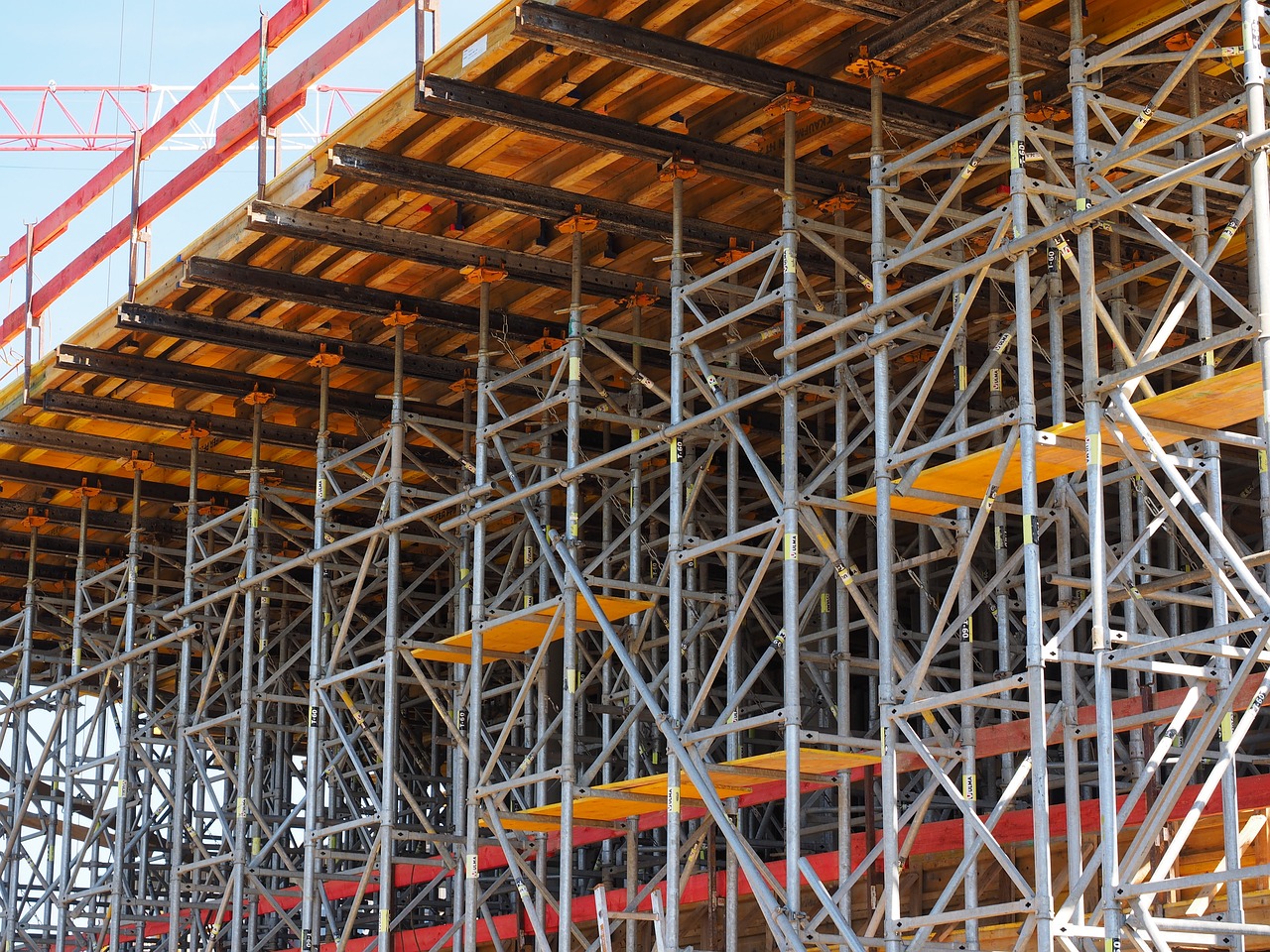The Science of Resilience - New Findings
In a world that constantly throws challenges our way, the concept of resilience has become a beacon of hope for many. But what exactly is resilience? At its core, resilience is the ability to adapt to stress and adversity, emerging from tough situations with a sense of strength and purpose. Think of it as a rubber band; it stretches and bends under pressure but always returns to its original shape. Recent research has shed light on the multifaceted nature of resilience, revealing its psychological, biological, and social dimensions. Understanding these layers can empower us to cultivate resilience in our lives and improve our mental health and well-being.
Resilience isn't just about bouncing back; it's about growing stronger through adversity. Imagine facing a storm—some people may feel overwhelmed, while others find a way to dance in the rain. This ability to navigate through life's challenges is what makes resilience so vital. Key characteristics of resilient individuals include a positive outlook, emotional regulation, and a strong sense of purpose. But why does resilience matter? In our everyday lives, resilience can be the difference between thriving and merely surviving. It influences our mental health, shapes our responses to stress, and even affects our physical health.
Recent studies have uncovered fascinating biological factors that contribute to resilience. Our genes, brain structure, and even the environment we grow up in play significant roles in shaping our ability to cope with challenges. For instance, genetic influences can predispose us to resilient behaviors, while neurobiological mechanisms help regulate our emotional responses. It's a complex interplay between biology and environment that ultimately defines how resilient we can be.
Did you know that specific genes are linked to resilient behavior? Research has identified several genetic markers that influence how we respond to stress. For example, variations in the BDNF gene, which is responsible for brain health, can affect our ability to cope with adversity. These genetic predispositions can create a foundation for resilience, making some individuals naturally more equipped to handle life's challenges than others. However, it's important to remember that genetics is just one piece of the puzzle.
Epigenetics adds another layer to the resilience story. Environmental factors can trigger changes in gene expression, enhancing or diminishing our resilience. For instance, a nurturing upbringing can lead to positive epigenetic changes that bolster resilience, while a traumatic experience might have the opposite effect. Life experiences, therefore, have the power to shape not just our behaviors but also our biological responses to stress.
The brain is at the heart of resilience. Key brain regions, such as the prefrontal cortex and the amygdala, are involved in our stress responses and emotional regulation. The prefrontal cortex helps us plan and make decisions, while the amygdala processes emotions like fear and anxiety. A well-functioning connection between these areas can enhance our ability to cope with stress, highlighting the importance of brain health in building resilience.
Resilience is not just about biology; psychological factors play a crucial role too. Traits such as optimism, emotional regulation, and problem-solving skills are essential in fostering resilience. Optimism, for instance, allows individuals to view challenges as opportunities for growth rather than insurmountable obstacles. Emotional regulation helps us manage our feelings and reactions, while strong problem-solving skills enable us to find effective solutions in tough situations. Together, these traits form a robust psychological framework that supports resilience.
While individual traits are important, social connections significantly impact resilience. Having supportive relationships and community ties can be a game-changer when facing life's hurdles. Think of it as having a safety net; when you fall, it’s the people around you that help you get back up. Studies show that individuals with strong social support are more likely to cope effectively with stress and recover from setbacks.
Creating a robust support network is essential for resilience. But how do you go about it? Start by nurturing existing relationships and seeking out new connections. Engage in community activities, join clubs or groups that align with your interests, and don’t hesitate to reach out to friends and family. The more meaningful relationships you cultivate, the stronger your resilience becomes.
Communities play a vital role in promoting resilience as well. Collective support and shared resources can enhance both individual and group resilience. When communities come together, they create an environment where members feel valued and supported. This sense of belonging can significantly buffer against stress and adversity, making it easier for individuals to thrive.
- What is resilience? Resilience is the ability to adapt and thrive in the face of adversity.
- Can resilience be developed? Yes, resilience can be cultivated through positive experiences, supportive relationships, and personal growth.
- How do genetics influence resilience? Certain genes can predispose individuals to resilient behaviors, affecting how they respond to stress.
- What role does social support play in resilience? Strong social connections provide emotional support, which is crucial for coping with challenges.

[Understanding Resilience]
Resilience is often described as the ability to bounce back from adversity, but it goes much deeper than that. It's not just about surviving tough times; it's about thriving in the face of challenges. Imagine a rubber band: it stretches under pressure but returns to its original shape. Similarly, resilient individuals can adapt to stress and emerge stronger, equipped with new skills and insights. This dynamic quality is essential for our mental health and overall well-being.
At its core, resilience is defined as the capacity to recover quickly from difficulties. It encompasses a range of psychological, emotional, and social factors that enable individuals to cope with life's inevitable ups and downs. Key characteristics of resilient people include:
- Adaptability: The ability to adjust to new circumstances and challenges.
- Optimism: A positive outlook that helps individuals see the silver lining in difficult situations.
- Emotional regulation: The capacity to manage and respond to emotions effectively.
- Problem-solving skills: The ability to find solutions and make decisions under pressure.
Why does resilience matter? Well, consider this: life is full of unexpected twists and turns. Whether it's a job loss, a health scare, or a personal crisis, the way we respond to these challenges can define our quality of life. Resilient individuals tend to experience less anxiety and depression, maintain healthier relationships, and even enjoy better physical health. They see challenges as opportunities for growth rather than insurmountable obstacles.
In essence, resilience is like a muscle; the more we use it, the stronger it becomes. It can be cultivated through various practices and strategies, such as mindfulness, social support, and positive thinking. By understanding what resilience is and why it’s crucial, we can take actionable steps to foster it in ourselves and others.
As we delve deeper into the science of resilience, we will explore its biological underpinnings, psychological aspects, and the vital role of social support systems. Each of these dimensions contributes to our ability to navigate life's challenges with grace and strength.

[Biological Underpinnings]
When we think about resilience, it’s easy to focus solely on mental and emotional factors. However, recent research has illuminated the biological foundations that play a crucial role in how we adapt to stress and adversity. Our bodies are not just passive vessels; they are actively engaged in the process of resilience. This section dives deep into the genetic influences and neurobiological mechanisms that shape our ability to bounce back from life's challenges.
First off, let’s talk about genetics. It turns out that certain genes can predispose individuals to exhibit resilient behavior. For instance, genes involved in the regulation of neurotransmitters like serotonin and dopamine have been linked to how we respond to stress. Individuals with certain variations of these genes may find it easier to manage stress and maintain a positive outlook. Isn’t it fascinating how our genetic makeup can influence our emotional resilience?
Genetic predispositions are not just random; they are the result of countless generations of evolution. Some studies have identified specific genes, such as the BDNF (Brain-Derived Neurotrophic Factor), which is crucial for brain health and function. Variants of this gene have been associated with better stress management and emotional regulation. This suggests that our biology can provide a significant advantage in developing resilience. So, when you think about resilience, remember it’s not just about willpower; it’s also about the biology of our being.
But wait, there’s more! Our genes are not set in stone. This is where epigenetics comes into play. Epigenetic changes can be influenced by our environment and life experiences. For example, stressful life events can lead to modifications in gene expression that might either enhance or diminish resilience. If you think of your genes as a piano, epigenetics is like the musician playing it. Depending on how the musician plays, the sound can vary dramatically. Life experiences can turn the volume up or down on our genetic potential for resilience.
Now, let’s shift our focus to the brain. The structure and function of our brain are pivotal in determining how we handle stress. Key regions such as the amygdala, which processes emotions, and the prefrontal cortex, responsible for decision-making and emotional regulation, are crucial in this process. When we face stress, these areas of the brain work together to help us respond effectively. Think of them as the command center of resilience, orchestrating our reactions to challenges.
Moreover, neuroplasticity—the brain's ability to adapt and reorganize itself—plays a significant role in resilience. Engaging in positive behaviors such as mindfulness, exercise, and social interaction can physically alter brain structure, enhancing resilience over time. This means that even if you start with a genetic disadvantage, you can still cultivate resilience through your actions and choices. It’s a beautiful reminder that while our biology sets the stage, we ultimately have a say in how the story unfolds.
In summary, the biological underpinnings of resilience are complex and multifaceted. From genetics and epigenetics to neurobiology, our ability to cope with stress is influenced by a myriad of factors. Understanding these elements not only sheds light on why some people are more resilient than others but also empowers us to take actionable steps to enhance our own resilience. Isn’t it incredible to think that by understanding our biology, we can pave the way for a more resilient future?
- What is resilience? Resilience is the ability to adapt and recover from stress and adversity.
- Can resilience be developed? Yes, resilience can be cultivated through various strategies, including building social connections and engaging in positive behaviors.
- How do genetics influence resilience? Certain genetic variations can predispose individuals to be more resilient by affecting their response to stress.
- What role does the environment play in resilience? Environmental factors can lead to epigenetic changes that enhance or diminish resilience.

[Genetics and Resilience]
When we think about resilience, it’s easy to assume that it’s entirely a product of our environment or personal experiences. However, the truth is much more fascinating! Recent research indicates that our genetic makeup plays a crucial role in how resilient we are in the face of adversity. Imagine resilience as a complex tapestry woven from both our genes and our life experiences, where each thread contributes to the overall strength and flexibility of the fabric.
Studies have identified specific genes that appear to be linked to resilient behaviors. For instance, the BDNF gene, which is involved in brain health and neuroplasticity, has been associated with how well we cope with stress. Those with certain variations of this gene may find it easier to bounce back from setbacks, akin to a rubber band that snaps back into shape after being stretched. This genetic predisposition doesn’t mean resilience is fixed; rather, it sets the stage for how we respond to life’s challenges.
Furthermore, genetic factors interact with environmental influences in a dynamic way. This is where the concept of epigenetics comes into play. Epigenetics refers to changes in gene expression that occur without altering the DNA sequence itself. For example, life experiences such as trauma or nurturing can trigger epigenetic changes that either enhance or hinder our resilience. Think of it like a dimmer switch: while the light bulb (our genes) remains the same, the brightness (gene expression) can be adjusted based on our experiences.
To illustrate this interaction, consider a table that summarizes some key genetic factors associated with resilience:
| Gene | Function | Impact on Resilience |
|---|---|---|
| BDNF | Neuroplasticity and brain health | Improved stress coping mechanisms |
| COMT | Dopamine metabolism | Affects emotional regulation and response to stress |
| 5-HTTLPR | Serotonin transporter | Influences mood and anxiety levels |
As we delve deeper into the neurobiology of resilience, we find that the brain is not just a passive recipient of genetic information but an active player in the resilience game. Certain brain regions, such as the prefrontal cortex and amygdala, are integral to how we process stress and emotions. The interplay between our genes and the functioning of these brain areas can significantly shape our ability to adapt and thrive, even in challenging circumstances.
In summary, while our environment and experiences are vital components of resilience, we cannot overlook the profound impact of our genetic heritage. By understanding the genetic underpinnings of resilience, we can better appreciate the intricate dance between nature and nurture. This knowledge not only enriches our understanding of resilience but also opens up avenues for enhancing mental health interventions tailored to individual genetic profiles.

[Epigenetics and Environment]
Epigenetics is a fascinating field that explores how our environment can influence gene expression without altering the underlying DNA sequence. Imagine your genes as a set of instructions for a recipe. While the recipe itself remains unchanged, the ingredients you choose can significantly affect the final dish. This analogy perfectly captures the essence of epigenetics. Environmental factors such as stress, nutrition, and social interactions can modify how these genetic instructions are read and executed, ultimately shaping our resilience.
Research indicates that experiences, particularly during critical developmental periods, can lead to epigenetic changes that either enhance or diminish resilience. For instance, children who grow up in nurturing environments often exhibit epigenetic markers that promote stress resilience. Conversely, those exposed to chronic adversity may develop epigenetic modifications that predispose them to anxiety and depression. This dynamic interplay between our environment and genetic expression highlights the importance of fostering positive experiences, especially in formative years.
One compelling study demonstrated how the nurturing behaviors of mothers could lead to beneficial epigenetic changes in their offspring. In this study, researchers observed that maternal care was linked to increased expression of genes associated with stress resilience. This suggests that the emotional and physical environment provided by caregivers plays a pivotal role in shaping a child's capacity to cope with life's challenges.
Moreover, epigenetic changes are not set in stone. They can be reversible, indicating that interventions aimed at improving environmental conditions can lead to positive outcomes. For example, therapeutic practices such as mindfulness, exercise, and social support have been shown to influence gene expression positively. This means that even if someone has a genetic predisposition to vulnerability, engaging in resilience-building activities can help mitigate these effects.
In summary, the relationship between epigenetics and our environment is a powerful reminder of the potential for change and growth. By understanding how our surroundings can influence our genetic expression, we can take proactive steps to cultivate resilience in ourselves and others. The key takeaway here is that while we may inherit certain genetic traits, our environment and experiences play a crucial role in determining how these traits manifest in our lives.
- What is epigenetics?
Epigenetics is the study of changes in gene expression that do not involve alterations to the underlying DNA sequence. These changes can be influenced by environmental factors.
- How does environment affect resilience?
The environment can positively or negatively influence gene expression, which in turn affects an individual's ability to cope with stress and adversity.
- Can epigenetic changes be reversed?
Yes, many epigenetic changes are reversible. Engaging in positive lifestyle choices and interventions can lead to beneficial changes in gene expression.
- What role do caregivers play in resilience?
Caregivers significantly impact a child's resilience through nurturing behaviors that can lead to positive epigenetic changes.

[Neurobiology of Resilience]
The neurobiology of resilience is a fascinating field that delves into how our brain's structure and function play pivotal roles in our ability to bounce back from adversity. Imagine your brain as a complex orchestra, where each instrument represents different brain regions that work in harmony to regulate our emotions and responses to stress. When life throws challenges our way, this orchestra can either produce a beautiful symphony of resilience or descend into chaotic dissonance. Understanding how these brain regions interact can help us unlock the secrets to enhancing our resilience.
Central to this discussion are key brain regions that significantly influence our stress response and emotional regulation. The amygdala, often dubbed the brain's "alarm system," is responsible for detecting threats and triggering our fight-or-flight response. When we face stress, the amygdala activates, sending signals to other parts of the brain to prepare for action. However, an overactive amygdala can lead to heightened anxiety and emotional dysregulation, making it harder to cope with challenges. On the flip side, individuals with a well-regulated amygdala tend to exhibit greater resilience, showcasing the importance of balance in our emotional responses.
Another critical player in this neurobiological orchestra is the prefrontal cortex. This region is like the conductor, overseeing and regulating the orchestra's performance. It is responsible for higher-order functions such as decision-making, impulse control, and emotional regulation. When we face adversity, a strong prefrontal cortex can help us analyze the situation, consider our options, and respond thoughtfully rather than reactively. Research shows that individuals with greater prefrontal cortex activity during stressful situations tend to demonstrate higher levels of resilience, highlighting the importance of cognitive control in overcoming life's hurdles.
Moreover, the hippocampus plays a crucial role in memory and learning, which are essential for adapting to new situations. A healthy hippocampus can help us draw upon past experiences to inform our responses to current challenges. Interestingly, studies have found that chronic stress can lead to a reduction in hippocampal volume, which may negatively impact our ability to cope with stress. This connection underscores the importance of maintaining brain health as a foundational element of resilience.
In summary, the neurobiology of resilience is a complex interplay between various brain regions that work together to help us navigate stress and adversity. By understanding how the amygdala, prefrontal cortex, and hippocampus contribute to our resilience, we can better appreciate the biological factors at play. This knowledge opens up pathways for interventions that can enhance our resilience, whether through cognitive training, stress management techniques, or even lifestyle changes that promote overall brain health.
- What is resilience? Resilience is the ability to adapt and recover from stress, adversity, or trauma.
- How does the brain influence resilience? Key brain regions such as the amygdala, prefrontal cortex, and hippocampus play crucial roles in regulating our emotional responses and stress management.
- Can resilience be developed? Yes, resilience can be cultivated through various strategies, including building strong social support systems and practicing emotional regulation techniques.

[Psychological Factors]
When we talk about resilience, we often think of it as a superhero-like ability to bounce back from adversity. But what really fuels this power? It turns out that our psychological makeup plays a huge role in how we handle life's curveballs. Resilience is not just about enduring tough times; it's also about how we think and feel during those moments. Key traits such as optimism, emotional regulation, and problem-solving skills are critical components that can either bolster or undermine our ability to be resilient.
First, let's dive into optimism. This isn't just about wearing rose-colored glasses; it's a mindset that allows individuals to see challenges as temporary and solvable. Optimistic people are more likely to view setbacks as learning opportunities rather than insurmountable obstacles. This perspective can significantly influence how we cope with stress. For instance, studies show that individuals with a positive outlook experience lower levels of anxiety and depression, which are often exacerbated by stress.
Next up is emotional regulation. Have you ever noticed how some people seem to keep their cool in high-pressure situations while others spiral into chaos? That's largely due to their ability to manage their emotions. Those who can effectively regulate their feelings tend to experience less emotional distress and are better equipped to navigate challenges. Techniques such as mindfulness and cognitive restructuring can enhance this skill, allowing individuals to respond to stressors in a more balanced way.
Then, there's the art of problem-solving. Think of it as your mental toolbox for tackling life's challenges. Effective problem-solvers approach difficulties with a sense of curiosity and a willingness to explore various solutions. They break down problems into manageable parts, making it easier to tackle them one step at a time. This not only fosters a sense of control but also boosts self-efficacy, reinforcing the belief that they can overcome adversity.
It's important to note that these psychological factors do not exist in isolation. They often interact with one another, creating a complex web of influences that shape our resilience. For example, an optimistic mindset can improve emotional regulation, while strong problem-solving skills can lead to more positive outcomes, further enhancing one's outlook. This interconnectedness highlights the importance of fostering a holistic approach to building resilience.
In summary, the psychological factors that contribute to resilience are multifaceted and deeply intertwined. By nurturing traits like optimism, honing emotional regulation skills, and sharpening problem-solving abilities, we can significantly enhance our resilience. Remember, resilience is not a fixed trait; it's a dynamic process that can be cultivated over time. So, the next time you face a challenge, take a moment to reflect on your mindset and skills. You might just find the strength to rise above it.
- What is resilience? Resilience is the ability to adapt and bounce back from stress, adversity, or challenges.
- Can resilience be learned? Yes, resilience can be cultivated through various psychological traits and skills.
- How does optimism affect resilience? Optimism helps individuals view challenges as temporary and manageable, which enhances their ability to cope.
- What role does emotional regulation play in resilience? Effective emotional regulation allows individuals to manage their feelings, reducing distress and improving coping strategies.
- How can I improve my problem-solving skills? You can enhance these skills by breaking down problems into smaller parts and exploring various solutions.

[Social Support Systems]
Social support systems are like the safety nets of our emotional lives. They provide us with the strength and resources to navigate through life's challenges. Think about it: when you face a tough situation, who do you turn to? Friends, family, colleagues? These connections are not just comforting; they are essential for building resilience. Research shows that people with strong social support systems tend to bounce back from adversity more effectively than those who go it alone. This is because social support can buffer against stress, provide practical help, and even enhance our mental health.
So, what exactly constitutes a social support system? It can be a mix of family, friends, colleagues, and even community groups. Each of these relationships plays a unique role in our resilience. For instance, family might offer emotional support, while friends can provide a sense of belonging and fun. Colleagues can help in professional contexts, offering advice and collaboration. Community groups can foster a sense of purpose and connection, which are crucial for mental well-being.
Moreover, the quality of these relationships is just as important as the quantity. Having a few close friends who truly understand you can be far more beneficial than having a large circle of acquaintances. Supportive relationships are characterized by trust, empathy, and open communication. They allow us to share our feelings without fear of judgment, which is a vital aspect of emotional resilience. When we feel heard and validated, we are more likely to cope effectively with stress.
Building a robust support network doesn't happen overnight; it requires effort and intention. Here are some strategies to consider:
- Be proactive: Reach out to friends and family regularly, not just when you need help.
- Be a good listener: Show support by being there for others; this fosters reciprocity in your relationships.
- Join groups: Whether it's a hobby club, a sports team, or a volunteer organization, engaging with others who share your interests can cultivate meaningful connections.
It's also essential to recognize that social support is not just about receiving help; it's about giving it too. When we support others, we reinforce our own resilience and build stronger bonds. Think of it as a cycle: giving and receiving support creates a community of resilience.
Communities play a vital role in promoting resilience as well. When individuals come together, they can share resources, knowledge, and emotional support. This collective strength can be particularly powerful in times of crisis. For example, during natural disasters or economic downturns, communities that band together often recover more quickly than those that remain isolated. Shared experiences and collective problem-solving can enhance both individual and group resilience.
In conclusion, social support systems are crucial for fostering resilience. They provide emotional sustenance, practical assistance, and a sense of belonging. By investing in our relationships and building strong community ties, we not only enhance our own resilience but also contribute to a more resilient society. Remember, resilience is not just an individual trait; it's a communal effort that thrives on connection and support.
Q: What is social support?
A: Social support refers to the emotional, informational, and practical assistance that individuals receive from their social networks, including family, friends, and community.
Q: How does social support impact resilience?
A: Social support helps individuals cope with stress and adversity, enhancing their ability to bounce back from difficult situations.
Q: Can I build a support network if I'm introverted?
A: Absolutely! Building a support network is about quality over quantity. Focus on developing deeper connections with a few individuals who resonate with you.
Q: What if I feel isolated and lack support?
A: Consider reaching out to local community groups, online forums, or even therapy. It's never too late to build connections.

[Building a Support Network]
When it comes to resilience, one of the most powerful tools in our arsenal is a strong support network. Think of it as your personal safety net, ready to catch you when life throws you a curveball. But how exactly do we go about building this vital network? Well, let's dive in!
First and foremost, it’s essential to **identify the key players** in your life. These are the people who uplift you, challenge you, and provide a listening ear when times get tough. They can be friends, family members, colleagues, or even mentors. The important thing is that they genuinely care about your well-being and are willing to stand by you during adversity.
Next, consider **actively nurturing these relationships**. Just like a garden, your support network needs attention and care to thrive. Regular check-ins, whether through a quick text, a phone call, or a coffee date, can strengthen these connections. It’s about creating a rhythm of communication that fosters closeness and trust. You might be surprised at how a simple gesture can deepen your bond with someone.
Moreover, don’t shy away from **expanding your circle**. Engaging in community activities, joining clubs, or participating in social events can introduce you to new people who share similar interests. This not only widens your network but also enhances your sense of belonging. After all, resilience is often bolstered by diverse perspectives and experiences.
To add a bit more structure, here are some **strategies** to consider when building your support network:
- Be Open and Vulnerable: Share your thoughts and feelings with others. This openness can encourage them to reciprocate, creating a deeper connection.
- Offer Support: Remember that building a network is a two-way street. Be there for others, and they will likely be there for you in return.
- Seek Professional Help: Sometimes, building a support network might involve reaching out to professionals like therapists or counselors who can provide guidance and support.
Lastly, it's vital to **evaluate your support network regularly**. Are these relationships still serving you? Are there any toxic connections that drain your energy? Being mindful of who you surround yourself with can significantly impact your resilience. Just as you would prune a plant to promote growth, don’t hesitate to let go of relationships that hinder your progress.
In conclusion, building a robust support network is not just about having people around you; it’s about cultivating meaningful relationships that empower you to face life's challenges head-on. Remember, resilience is not a solo journey; it's a collective experience, and having a strong support system can make all the difference!
Q1: How do I know if I have a strong support network?
A strong support network is characterized by people who are reliable, trustworthy, and understanding. If you can count on them during tough times and feel comfortable sharing your thoughts and feelings, you likely have a solid support system.
Q2: What should I do if I feel isolated?
If you're feeling isolated, try reaching out to acquaintances or joining community groups that align with your interests. Volunteering or taking classes can also help you meet new people and expand your network.
Q3: Can online connections be part of my support network?
Absolutely! Online relationships can be just as meaningful as in-person ones. Social media groups, forums, and online communities can provide support and connection, especially if you find it challenging to connect face-to-face.

[Impact of Community on Resilience]
Communities are like the sturdy roots of a tree, providing essential support and nourishment that help individuals weather life's storms. The impact of community on resilience cannot be overstated; it acts as a protective buffer against stress and adversity. When we face challenges, having a strong network of friends, family, and community members can make all the difference. Think of it this way: just as a single strand of grass can be easily uprooted by the wind, a group of grass blades standing together can withstand even the fiercest of gales. This analogy reflects how collective strength fosters resilience.
Research has shown that individuals who are part of a supportive community tend to experience lower levels of anxiety and depression. They are more likely to cope effectively with stress and recover from setbacks. This is because social connections provide a sense of belonging and purpose, which are crucial for mental health. For instance, a study published in the Journal of Health and Social Behavior found that people with strong social ties have a significantly lower risk of mortality compared to those who are isolated. This highlights how community can enhance not just emotional well-being but also physical health.
Moreover, communities can serve as a resource for shared knowledge and experiences, which can be invaluable during tough times. When individuals face challenges, they can draw upon the collective wisdom of their community, gaining insights and strategies that they might not have considered on their own. This sharing of resources can manifest in various forms, such as support groups, mentorship programs, or community workshops that focus on building resilience skills.
To illustrate this point, let's look at a table summarizing the different ways communities can impact resilience:
| Community Impact | Description |
|---|---|
| Emotional Support | Providing a safe space to express feelings and receive encouragement. |
| Resource Sharing | Access to information, tools, and services that aid in coping strategies. |
| Collective Problem-Solving | Collaborative efforts to find solutions to common challenges. |
| Sense of Belonging | Fostering connections that enhance identity and purpose. |
In addition to emotional and practical support, communities can also play a pivotal role in fostering resilience through shared cultural practices and traditions. These elements often instill a sense of identity and continuity, which can be incredibly grounding during times of change or upheaval. For example, community rituals, celebrations, and gatherings can reinforce social bonds and provide a sense of normalcy, helping individuals to navigate through life's unpredictability.
Ultimately, the impact of community on resilience is profound and multifaceted. By building and nurturing these connections, we not only enhance our own resilience but also contribute to a culture of support that benefits everyone. Just as a single candle can illuminate a dark room, the light of community can guide individuals through their darkest hours, illuminating pathways to recovery and growth.
- What is resilience?
Resilience is the ability to adapt to stress and adversity, bouncing back from challenges and setbacks. - How can community support enhance resilience?
Community support provides emotional backing, resources, and a sense of belonging, all of which contribute to an individual's ability to cope with difficulties. - What role do social connections play in mental health?
Strong social connections are linked to lower levels of anxiety and depression, promoting overall mental well-being. - How can I build a support network?
Engage in community activities, reach out to friends and family, and seek out groups that align with your interests to cultivate meaningful relationships.
Frequently Asked Questions
- What is resilience?
Resilience is the ability to bounce back from stress and adversity. It’s like a rubber band that stretches but doesn’t break. This quality helps individuals adapt to challenges and maintain their mental health.
- How can resilience be cultivated?
Resilience can be developed through various strategies, such as building strong social connections, practicing mindfulness, and fostering a positive mindset. Just like exercising a muscle, the more you work on it, the stronger it becomes!
- What role do genetics play in resilience?
Genetics significantly influence resilience. Certain genes are linked to how we respond to stress. Think of it as having a natural toolkit; some people might have better tools than others, but everyone can learn to use what they have effectively.
- Can environment affect resilience?
Absolutely! Our environment can enhance or diminish resilience through epigenetic changes. Life experiences can influence how our genes express themselves, shaping our ability to cope with challenges.
- What psychological traits contribute to resilience?
Traits like optimism, emotional regulation, and problem-solving skills are key to building resilience. They help individuals maintain a positive outlook and navigate through tough times, much like a captain steering a ship through stormy seas.
- How important are social support systems?
Social connections are crucial for resilience. Having a supportive network can provide comfort and encouragement, making it easier to face life's challenges. It’s like having a safety net that catches you when you fall.
- What are some ways to build a support network?
To create a robust support network, engage in community activities, reach out to friends and family, and be open to forming new relationships. Think of it as planting seeds; with time and care, they can grow into a flourishing garden of support!
- How does community impact resilience?
Communities play a vital role in promoting resilience by providing shared resources and collective support. When individuals come together, they create a strong foundation that enhances both individual and group resilience.



















